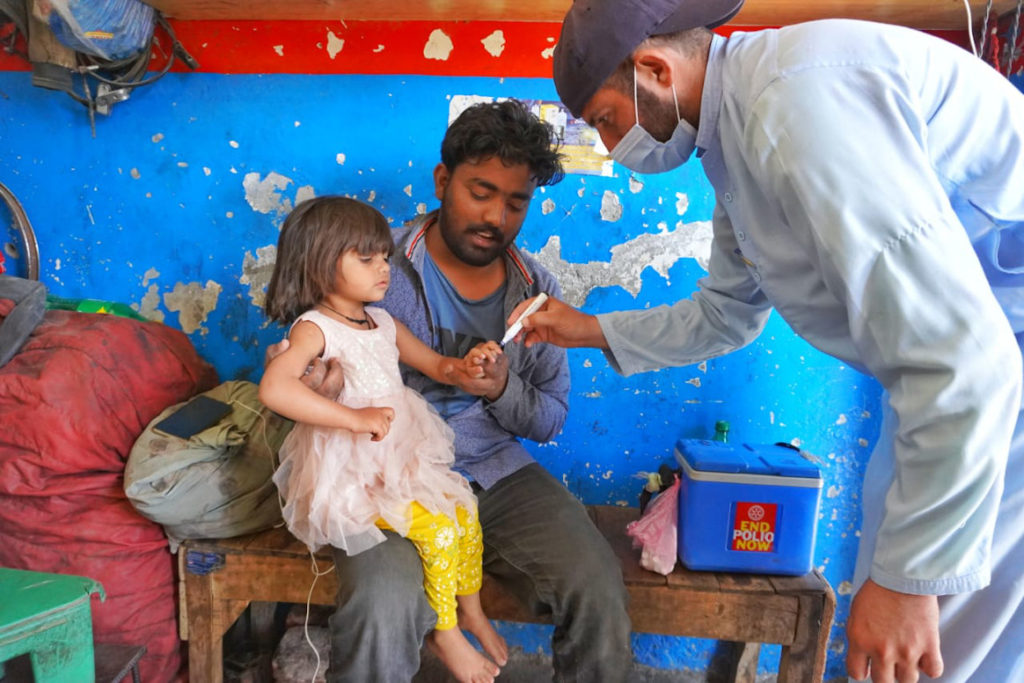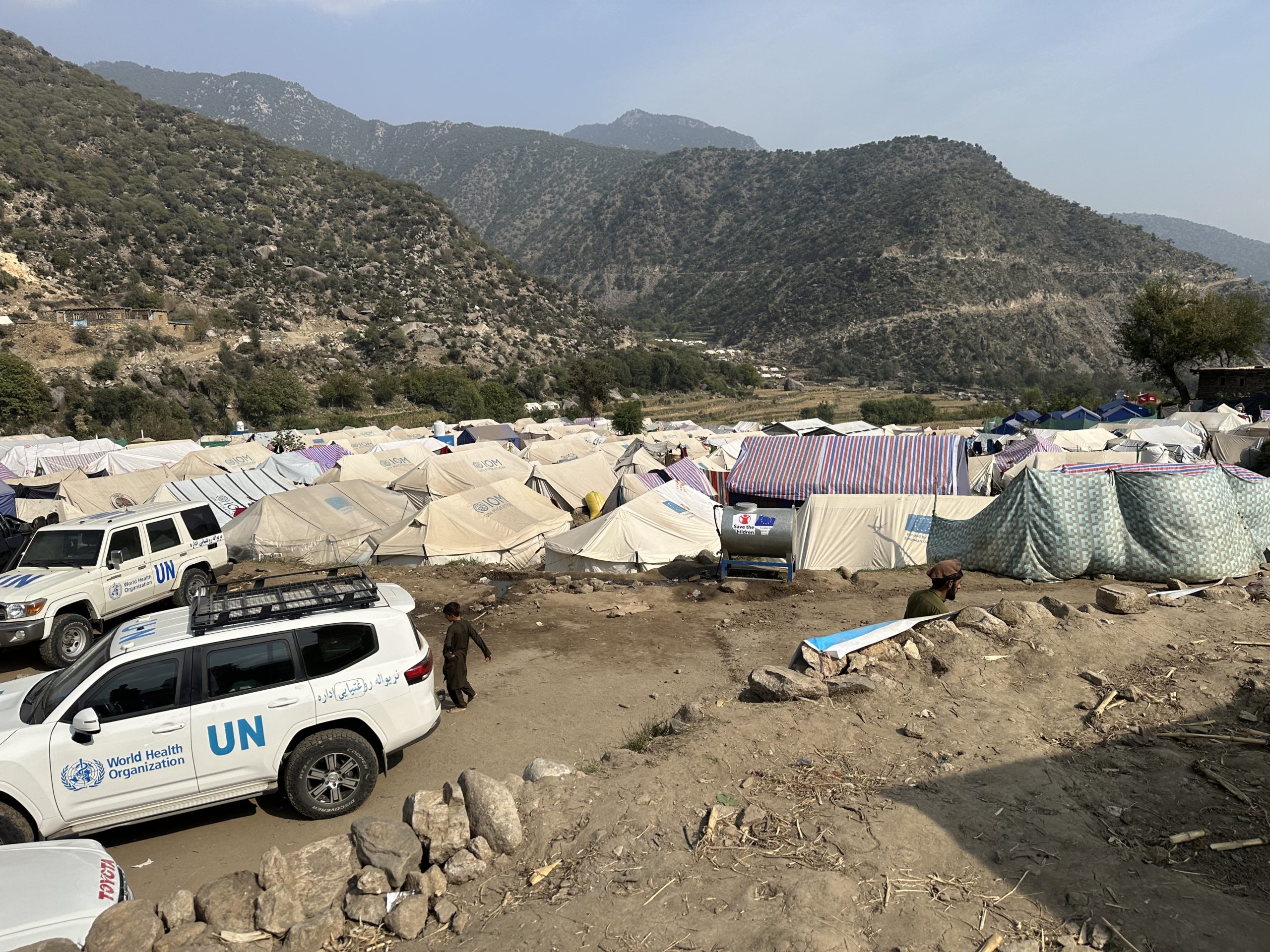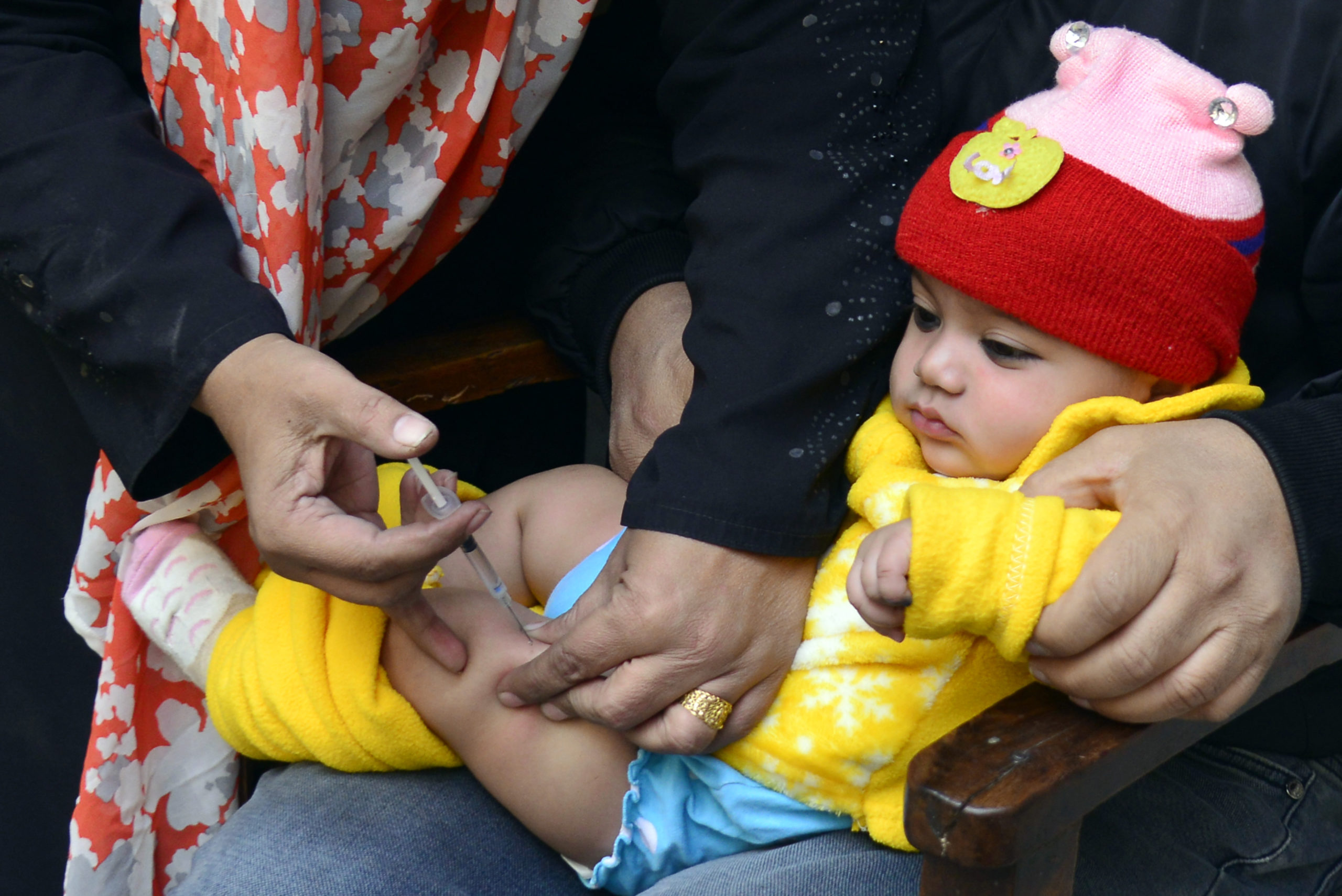
Prominent specialists convened by WHO and the Aga Khan University in Karachi conclude that all available evidence corroborates that Pakistan is close to eliminating the global health threat of polio; while warning that the recent detection of poliovirus in Germany shows that the cost of inaction far exceeds the cost of action.
24 November 2025, Islamabad, Pakistan – International and national experts convened by the World Health Organization (WHO) and the Aga Khan University in Karachi on Friday unanimously concluded that all available science and evidence indicate that, despite challenges, ending polio in Pakistan and globally is within reach. Experts underlined that, over the last 3 decades, the Pakistan Polio Eradication Initiative has reduced polio cases by 99.6% in Pakistan – from 20 000 annual cases to 74 in 2024, and 30 so far in 2025 –, demonstrating that vaccines work and save lives.
Panelists underscored that the recent detection of wild poliovirus in Germany is a stark reminder of the urgent need to sustain joint action. They emphasized that scaling back efforts would pose a global health risk, and the cost of inaction is far greater than the cost of action.
These were the overall conclusions of an event entitled “How close are we? The last mile to polio eradication” co-organized by WHO and the Aga Khan University in Karachi. The panel discussion, moderated by Dr Ali Faisal Saleem from Aga Khan University Hospital, gathered over 400 in-person and online participants, including experts, partners, authorities, medical professionals and students.
“Eradicating polio is like wrestling with a gorilla. Even when you have the gorilla down you cannot let go. Now we have so few polio cases, but if we let go it is again going to become a problem that is going to haunt us forever,” added Dr Maher.
The positive impacts of ongoing polio eradication efforts in Pakistan were also praised by Dr Sebastian Taylor, member of the Technical Advisory Group for Polio Eradication and Head of Global Operations at Royal College of Paediatrics and Child Health. “On the supply side, the program is unbelievably hard working, from the ground all the way up. Actually, the evidence that I have seen in front of me has been extremely positive.”
“This is the last mile, and we need all the help that we can get to reach every child. It is not only an issue for Pakistan; it is an issue for the world,” said State Health Minister of Sindh Azra Fazal Pechuho.
The Prime Minister Focal Person for Polio Eradication in Pakistan, Ms Ayesha Raza Farooq, underlined how, since 1994, “we have managed to reduce the disease burden in the country by 99.6%, and 2 of the 3 strains of wild poliovirus that were circulating then have been eradicated. We have come this far by establishing a sophisticated network of emergency operation centres that are driven by scientific and data-based operations.”
Ms Raza Farooq underscored that Pakistan “will be able to cross the finish line very soon” thanks to ongoing science-based efforts. “Today, Pakistan boasts one of the largest and most sensitive surveillance networks in the world. This allows us to stay ahead of the virus. While there is polio anywhere in the world, nobody is safe. The recent detection in Germany proves that. It is not time to quit; it is time to recommit,” she said.
“The medical data is very, very clear – vaccines do deliver enough immunity to knock out polio transmission. The question of whether eradicating polio is medically possible is gone. It is no longer a theory, there is practical evidence that difficult geographies across the world, in Africa, in Asia, in the Middle East, have done it. The vaccine does work. In the ’90s, when I was doing my medical school in Turkey, there was polio there. And I was skeptical, but it was done,” said WHO Director for Polio Eradication and Chair of the Global Polio Eradication Strategy Committee Dr Jamal Ahmed.
“What we need is to really believe it, to mobilize and finish it in Pakistan, starting from here, in Karachi. And if we do that, the world will be polio-free,” added Dr Ahmed.
“The science is evident. And the tools to apply this science have now improved in terms of technology. So, all of the science fundamental points are met. India had 700 cases in 2009. Twelve months later, India had its last polio case. The same happened in Nigeria. So, one of these viruses will be the last one. The world is full of bad news, and polio eradication is good news that we can make,” said the Coordinator of the WHO Pakistan Polio Programme, Dr Mohammed Soghaier.
Professor Dr Shahnaz Ibrahim, Head of Paediatric Neurology at the Aga Khan University and Chair of the National Polio Certification Committee, concurred that Pakistan is close to becoming polio-free. She called on all stakeholders and the general public to intensify efforts and remember that the poliovirus remains a “terrifying” public health risk.
“I have run marathons, and the last mile is the most difficult. It is when you want to give up, but we should not,” said Dr Ibrahim. “I have a lot of experience seeing polio cases, and they were terrifying. If you were to see through my eyes those horrifying experiences… So, polio is not mild. It is now mild because we have been doing this (vaccination). It is so hopeful for me that we are going to go to zero polio. We are going to do it.”
Dr Christopher Maher, senior specialist in polio eradication and former Chief Scientist of the Global Polio Programme, highlighted the increasing sophistication of the polio response; while warning that eradication efforts must persist until the last child. “Surveillance systems in Pakistan, in particular now, but also in Afghanistan to an extent, are orders of magnitude above the sensitivity of anything we had in the early part of eradication. For the first 8 years that I was working on polio, we did not know what it was. We didn’t have genetic sequencing. The sophistication of what exists now is remarkable, and it also affects our perception of what is going on, because, in the past, we did not have these tools. So, we were not finding as much virus as we are now.”
“Eradicating polio is like wrestling with a gorilla. Even when you have the gorilla down you cannot let go. Now we have so few polio cases, but if we let go it is again going to become a problem that is going to haunt us forever,” added Dr Maher.
The positive impacts of ongoing polio eradication efforts in Pakistan were also praised by Dr Sebastian Taylor, member of the Technical Advisory Group for Polio Eradication and Head of Global Operations at Royal College of Paediatrics and Child Health. “On the supply side, the program is unbelievably hard working, from the ground all the way up. Actually, the evidence that I have seen in front of me has been extremely positive.”
The Chairman of the National Polio Plus Committee for Rotary International, Mr. Aziz Memon, delivered a message of hope based on over 4 decades of experience championing efforts to eradicate polio. “When we started this, there used to be 130,000 cases. So many children were dying also. It used to be 125 endemic countries, and now we are just fighting with the last 2: Pakistan and Afghanistan. Rotary has been championing polio eradication from the start, and we have no intentions to stop or to give up. We want to tell this audience and the world that we will be there until we finish the work. Today surveillance in Pakistan and Afghanistan is superb. The virus cannot hide from us. As Nelson Mandela said, it is always impossible until it is done. We will make the world polio-free.”
In his closing remarks, the Dean of Aga Khan University Medical College, Dr Karim F. Damji, called on all stakeholders to strengthen the partnership to eradicate polio and promote public health. “The greatest progress in maternal and child health comes when leadership is joined by partnership. When governments, communities, and development institutions work as one, even the most challenging environments can witness rapid and profound change,” said Dr Damji.
“Polio eradication is within sight. It demands persistence, knowledge, humility, empathy, and innovation, but most of all, that we work together with a community-engaged model, and continue to walk together on this last mile.”



